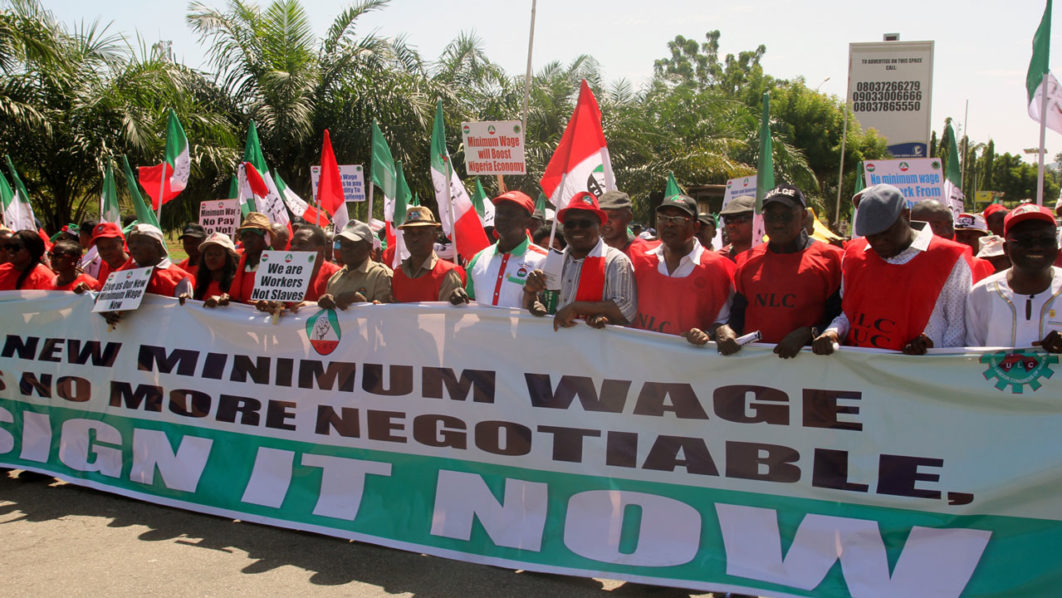Latest economic data released by the National Bureau of Statistics (NBS), in the fourth quarter of 2016, has shown that the nation’s Gross Domestic Product (GDP) contracted by -1.30 per cent (year-on-year) in real terms, from N18,533.75 billion in Q4 2015 to N18,292.95 billion in Q4 2016.
Otherwise, the GDP of the Nigerian economy has continued to dwindle due to factors ranging from weaker inflation, induced consumption demand, an increase in pipeline vandalism, significant reduced foreign reserves and a concomitantly weaker currency and problems in the energy sector such as fuel shortages and lower electricity generation.
But in a surprise reaction to the new data, the Presidency claimed that it has shown that Nigeria has started exiting from recession as there were appreciable signs of growth in agriculture and mining.
But looking at the released data in an interview, Dr. Ikenna Nwosu, a development analyst said the data is correct going by the realities on ground. He said “There has been total lull in shipping activities within the period under review which means that manufacturing activities are at the lowest ebb because over 75 per cent of raw materials come from abroad and there is no forex to buy them”.
“We are aware of several factories that have closed down and workers sacked.
But for the downward trend to be reversed, government need to introduce policies that will ease of sourcing raw materials by manufacturers because manufacturing in the engine room for GDP growth.
Reviewing the new report, a fanatical analyst at financial Derivatives Company, Ms. Amaka Ajaegbu said the nation is in need of smart reforms in all key sectors of the productive wing of the economy.
She added that even though there may have been some improvements in power generation, it has to be translated to supplies to industrial areas to boost outputs.
Again, Ajaegbu argued that it is important for the Central Bank of Nigeria (CBN) to sustain policies directed at making forex available seamlessly to enable members of the Manufacturers Association of Nigeria (MAN) get foreign raw materials to grow production.
Ms. Linda Chukwuma, a forex dealer at Wema Bank said with the rising value of naira over dollar and other currencies, there is more need for the CBN to sustain injection of forex so as to force currency speculators to rush to the market and shade off all they have been keeping.
Also, Abiodun Falade, Chairman, Agro-Allied group of the Lagos Chamber of Commerce and Industry (LCCI) said the new report has revealed that this is time to invest more in agriculture which Nigeria already has a strong comparative advantage considering our massive arable land and irrigation facilities.
Business Hilights observed further from a detailed data released from the NBS that the decline was less severe than the decline recorded in the previous quarter, of -2.24 per cent, but was nevertheless lower than the growth rate recorded in the final quarter of 2015, of 2.11 per cent. The data showed further that quarter on quarter, real GDP increased by 4.09 per cent, which partly reflects seasonal factors as well as a rise in the general price level.
For the full year 2016, the GDP contracted by -1.51%, indicating real GDP of N67,984.20 billion for the year. Nominal GDP was N29,292,998.54 million at basic prices in the fourth quarter of 2016, which represents year on year nominal growth of 12.97 per cent. In contrast to real growth, this is 5.84 per cent points higher than the rate recorded in the same quarter of 2015, implying that the GDP deflator increased faster than the earlier period. For full year 2016, aggregate nominal GDP stood at N101,598,482.13 compared to N94,144,960.45.
During the period under review, oil sector contributed 8.07 per cent to the growth of the GDP with an estimated production of 1.90million barrels per day. However, for the full year, oil production was estimated to be 1.833million barrels per day, compared to 2.13million barrels per day in 2015. The reduction was largely due to vandalism in the Niger Delta region and as a result, the sector contracted by -13.65 per cent, a more significant decline than that in 2015 of -5.45 per cent which reduced the oil sectors share of real GDP to 8.42 per cent in 2016, compared to 9.61 per cent in 2015.
The non-oil sector contributed its share of GDP to 92.85 per cent from 91.94 per cent in the fourth quarter of 2015.









